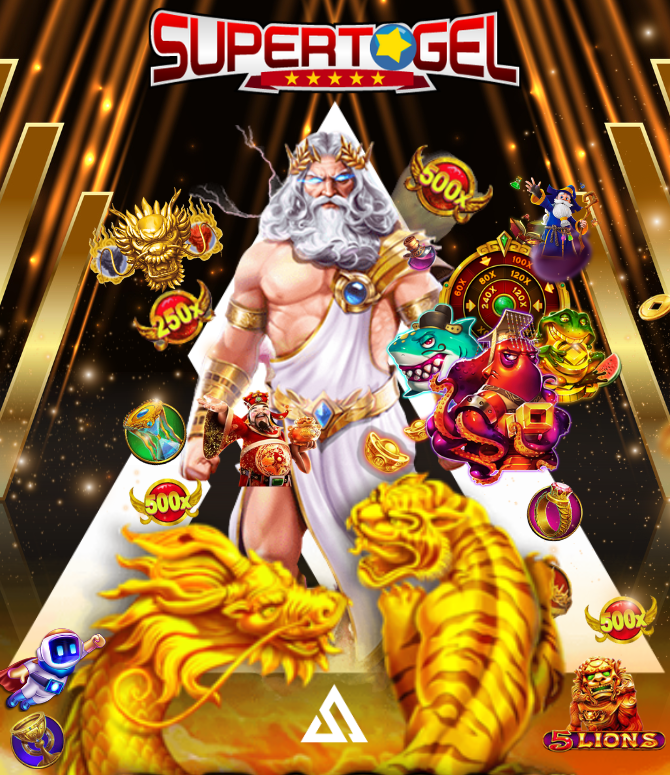rtp slot
RTP Slot Gacor Hari Ini, RTP Live Hari Ini, Link Gacor Malam Ini
RTP Slot Gacor Hari Ini, RTP Live Hari Ini, Link Gacor Malam Ini
Couldn't load pickup availability
RTP Slot Gacor Hari Ini, RTP Live Hari Ini, Link Gacor Malam Ini
RTP Slot Gacor Hari Ini merupakan yang yang paling dicari cari pemain judi slot online karena rtp live hari ini yang disediakan. Rtp slot gacor hari ini pragmatic play bisa menjadi hal yang penting bagi pemain judi slot online uang asli karena pemain bisa dengan mudah melihat rtp live hari ini terupdate setiap harinya. Rtp live hari ini sendiri merupakan singkatan dari return to players live atau dalam artian lain rtp slot hari ini merupakan prediksi slot gacor hari ini yang disediakan melalui tabel rtp slot hari ini dengan persentase kemenangan pemain judi slot online dalam setiap game slot gacor hari ini. Dengan demikian banyak pemain yang saat ini selalu melihat bocoran rtp slot gacor hari ini pragmatic play melalui link gacor malam ini situs rtp live hari ini terbaru. Rtp slot gacor hari ini sendiri tersedia pada link gacor malam ini situs rtp live hari ini kami yang pastinya selalu diupdate secara real time setiap saat. Maka dari itu semua pemain judi slot online dapat dengan mudah melakukan cek pada seluruh prediksi bocoran rtp slot gacor hari ini live melalui link gacor malam ini. Dengan demikian pemain judi slot online pragmatic play tidak perlu lagi kerepotan mencari situs rtp live hari ini terupdate yang menyediakan bocoran rtp slot gacor hari ini pragmatic play terlengkap.
RTP Slot Hari Ini Bisa Dilihat Dari Link Gacor Malam Ini Pragmatic Play
RTP Slot Hari Ini Merupakan hal yang penting bagi seluruh pemain judi slot pragmatic play setiap harinya. Sebelumnya link gacor malam ini yang berisikan rtp slot hari ini live merupakan hal yang mudah dilihat oleh seluruh pemain judi slot online di seluruh indonesia. Namun, saat ini banyak pemain yang melakukan komplain terhadap susahnya mencari rtp slot gacor hari ini yang berisikan rtp live. Memang masih banyak situs link gacor malam ini yang menyediakan tabel rtp slot hari ini namun, banyak situs yang tidak melakukan update terhadap rtp live hari ini mereka. Dengan demikian banyak pemain judi slot online yang kesulitan untuk mendapatkan kemenangan jackpot maxwin pada judi slot uang asli pragmatic play. Dengan demikian saat ini kami menyediakan situs link gacor malam ini yang berisikan rtp slot hari ini terupdate dengan rtp live terbaru. Dengan demikian semua pencari rtp slot gacor hari ini uang asli pragmatic play bisa dengan mudah melihat rtp slot gacor hari ini pragmatic play secara bebas dan mudah. Seluruh link gacor malam ini pada situs kami juga menyediakan rtp live yang pastinya di update setiap saat mengikuti pergerakan dari persentase rtp live pragmatic play. Dengan demikian pemain judi slot online disarankan untuk selalu memantau pergerakan dari rtp slot hari ini live pragmatic play pada situs link gacor malam ini kami.
RTP Slot Hari Ini yang kami sediakan jugalah merupakan rtp slot gacor hari ini resmi dari pragmatic play langsung. Seluruh rtp slot hari ini yang kalian lihat pada tabel rtp live hari ini di situs kami bukanlah rtp pada umumnya yang disediakan melalui situs rtp slot hari ini lainnya. Kami telah bekerja sama langsung dengan pragmatic play untuk menyediakan rtp slot gacor hari ini dengan persentase yang sama persis dengan game slot online pragmatic play. Maka dari itu pencari rtp live hari ini pragmatic play tentunya bisa melihat rtp live hari ini terupdate yang paling akurat hanya dengan link gacor malam ini situs kami.
RTP Live Hari Ini Terbaru Membantu Pemain Meraih Jackpot
RTP Live Hari Ini terupdate melalui link gacor malam ini situs kami pastinya sudah membantu banyak pemain judi slot online memenangkan judi slot online. Hal ini terjadi karena persentase dari tabel rtp live hari ini situs kami merupakan persentase akurat. Selain itu pemain juga bisa dengan bebas mendapatkan keuntungan yang sangat besar hanya dengan melihat persentase rtp live hari ini slot gacor malam ini kami. Saat ini pastinya cara melihat rtp live hari ini sudah banyak di mengerti oleh seluruh pemain judi slot online. Namun, bagi pemain baru yang belajar melihat cek bocoran rtp live slot hari ini kami akan memberikan tutorial cara melihat bocoran rtp slot gacor hari ini pragmatic play. Berikut adalah langkah-langkah melihat bocoran rtp live hari ini termudah:
- Pertama tama kalian disarankan melihat seluruh game dari atas hingga bawah agar mendapatkan gambaran utama dari rtp live hari ini.
- Selanjutnya pemain disarankan mencocokan jam gacor hari ini yang tertera dan jam main saat ini.
- Selanjutnya pemain disarankan memilih rtp slot hari ini yang sedang memiliki warna kuning atau hijau saja. Hal tersebut dikarenakan warna hijau merupakan penanda dari rtp live hari ini tinggi, warna kuning merupakan rtp slot hari ini sedang, dan merah rtp live slot yang sedang rendah.
- Selanjutnya pastikan kalian mendata seluruh game yang memiliki rtp live hari ini tinggi.
- Gunakan bocoran pola gacor yang tertera pada tabel rtp slot gacor hari ini melalui link gacor malam ini secara akurat.
- Jika mengalami kekalahan maka coba game slot online pragmatic play lainnya atau cek rtp live hari ini ulang melalui link gacor malam ini. Hal ini disarankan karena rtp slot hari ini bisa saja mengalami perubahan saat kalian sedang memainkan judi slot online.
Seluruh cara melihat rtp live hari ini tersebut merupakan cara termudah untuk kalian memahami link rtp slot gacor hari ini. Dengan mengikuti seluruh langkah-langkah tersebut sudah banyak pemain judi slot online yang mendapatkan kemenangan jackpot pada situs slot online uang asli. Pastikan juga kalian menyimpan link gacor malam ini untuk selalu masuk ke situs rtp live hari ini pragmatic play.
RTP SLOT GACOR


